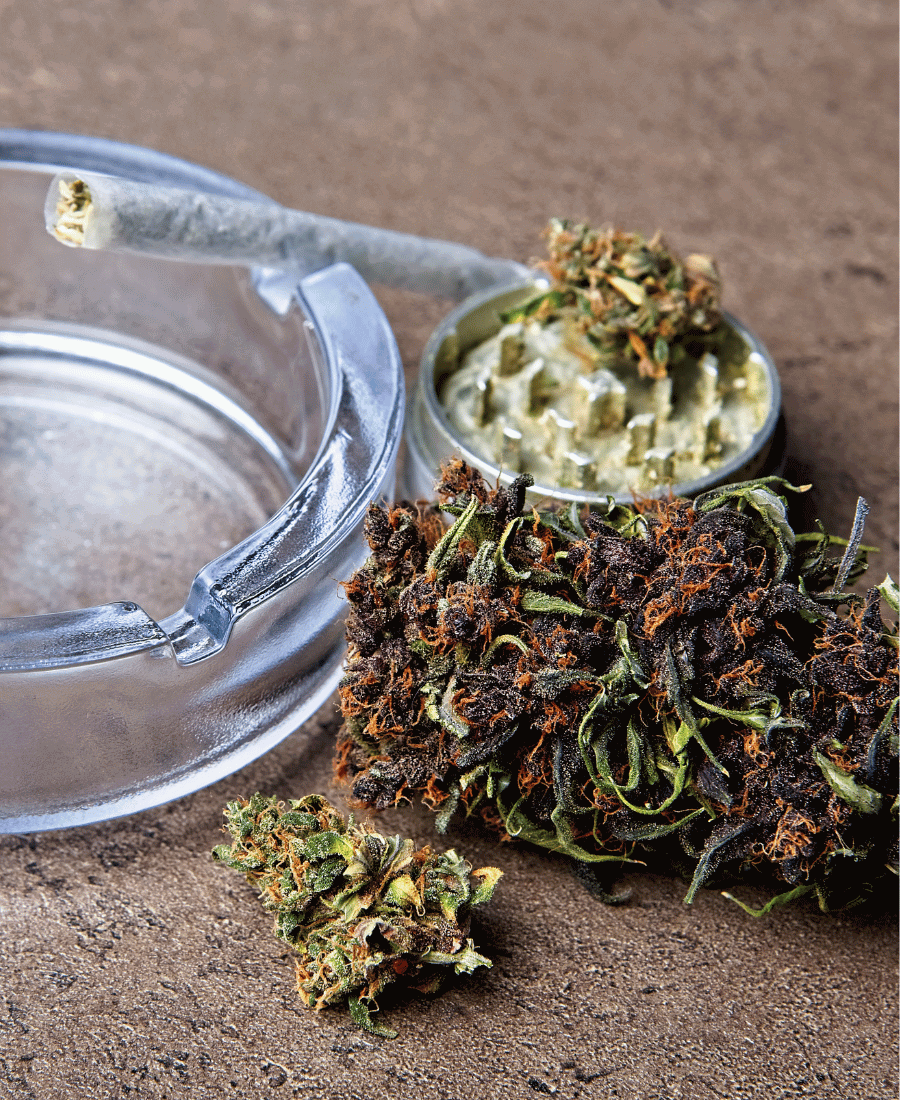What is THC-COOH?
THC-COOH, which stands for tetrahydrocannabinol carboxylic acid, is a breakdown product of THC, the psychoactive substance in cannabis. So when you smoke a joint or consume a bit of hashish, THC is processed in the body and turns into THC-COOH, among other things.
Why is THC-COOH important? It is particularly interesting for drug tests. While THC provides the "high", THC-COOH is not intoxicating. It simply shows that you have consumed cannabis and can remain detectable in the body for a while.
How long does THC-COOH stay in the body? This depends on various factors, such as how often and how much you consume. As a rule, THC-COOH can be detected weeks or even months after the last use, which makes it relevant for drug tests, whether at work or in sports.
Detectability of THC-COOH
When it comes to THC-COOH, detectability is an important issue. Here are the most important points:
How long is THC-COOH detectable? For occasional users, THC-COOH can be detected in the urine up to three weeks after the last use. With regular use, it can even remain visible for up to a month or longer.
Urine tests: The most common method of detection is the urine test, which specifically looks for THC-COOH. If you have used recently, a drug test could be positive.
Influencing factors:
-Consumption pattern: Occasional consumption leads to shorter detection times than regular consumption.
-Metabolism: Individual differences in metabolism can influence the time it takes to break down.
-Body fat: THC-COOH is stored in fatty tissue, so people with higher body fat tend to have longer detection times.


Factors that influence the THC-COOH value
The THC-COOH value in the body can be influenced by various factors. Here are the most important ones:
1.consumption patterns:
- Occasional use usually leads to lower THC-COOH levels and shorter detection times. With regular or heavy use, the values can be significantly higher and detectable for longer.
2.amount consumed:
- The more cannabis you consume, the higher the THC-COOH value will be. A higher dose leads to more breakdown products in the body.
3.body fat:
- THC-COOH is stored in fatty tissue. People with higher body fat can hold THC-COOH longer in the body, which increases detectability.
4.metabolism:
- Everyone has a different metabolism, which affects how quickly THC-COOH is broken down. A faster metabolism can shorten the breakdown time.
5.hydration and nutrition:
- Adequate hydration and a healthy diet can also influence the breakdown and excretion of THC-COOH.
Significance for drug tests
The THC-COOH value plays a decisive role in drug tests. Here are the most important points:
1.detectability: THC-COOH is the main breakdown product of THC and is often detected in urine tests. As it remains in the body longer than THC itself, it is a reliable indicator of cannabis use.
2.test method: The most common method for testing THC-COOH is the urine test. These tests are widely used in various settings, including workplaces, sports, and legal proceedings.
3.consequences: A positive test for THC-COOH can have serious consequences, such as loss of employment, restrictions in sports, or legal problems. It is therefore important to be aware of your own use, especially if a drug test is imminent.
4.threshold values: Drug tests have certain threshold values above which a positive test is considered as such. These values can vary depending on the test method and country.
5.long-term detectability: With regular use, THC-COOH can be detected weeks or even months after the last use, making it particularly relevant for people who have to undergo regular testing.
Health aspects of THC-COOH
THC-COOH, as a breakdown product of THC, has some health aspects that are important to note:
1.non-psychoactive: THC-COOH is non-psychoactive, meaning that it has no intoxicating effect. However, it is a marker for previous use of THC, which may well have health effects.
2.long-term use: With regular cannabis use, the accumulation of THC and its metabolites in the body can have long-term health consequences. These include possible impairment of the respiratory and immune systems.
3.mental health: while THC-COOH itself is not directly linked to mental illness, the use of THC can increase the risk of anxiety disorders, depression and other mental health problems in some individuals.
4.dependence: Regular intake of THC can lead to dependence in some people. The presence of THC-COOH in the body can be an indication that someone is a regular user, which increases the risk of addiction.
5.drug testing and health decisions: A positive drug test for THC-COOH can not only have professional consequences, but can also affect your overall health decisions. It is important to be informed about the potential effects of use and detectability.




